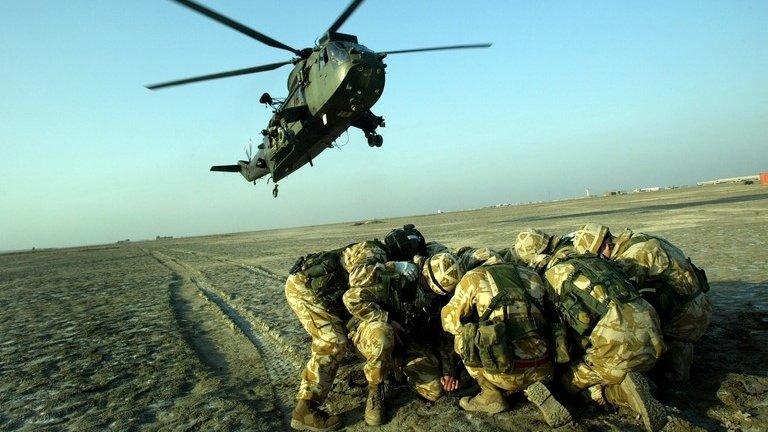Sir John Chilcot explains Iraq report delay to families
- Published
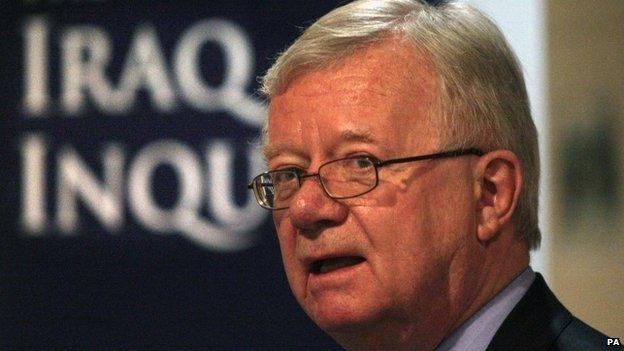
Sir John Chilcot began his work in 2009
Sir John Chilcot has tried to explain to families of UK soldiers killed in Iraq why his inquiry is taking so long following threats of legal action.
In a statement, external, he said he understood their "anguish", but responses from those criticised in the report had opened up new lines of inquiry.
He declined to set out a timetable for publication.
Reg Keys, whose son Tom died in Iraq in 2003, said he was "bitterly disappointed" by the explanation.
Foreign Secretary Philip Hammond said the government was "as frustrated as anybody" by the delays, but its ability to influence the report's publication date was "non-existent".
Mr Keys told the BBC that lawyers for the families were now meeting to decide whether to proceed with threatened legal action to force Sir John to set out a timetable for publication.
The witnesses should have been given a maximum of six months to respond to criticism, said Mr Keys, and he feared the whole process had now become a "farce".
"They had their chance to put their evidence at the time," he said. "To drag it out is just unbearable for the families of the fallen."
'New issues'
It now seemed the inquiry would "never get to the whole truth about this whole sorry conflict," added Mr Keys.
Roger Bacon, whose son, Maj Matthew Bacon, was killed in Iraq in 2005, also criticised Sir John, saying: "I'm not sure he is able to understand our anguish."
Sir John has written to the families giving his reasons for the hold-up, but said he would not be making the contents of that letter public.
In his statement, Sir John blamed the "Maxwellisation" process - where those criticised are given an opportunity to respond - for the delays.
"Individuals have not been given an open-ended timescale and Maxwellisation is not a process of negotiation.
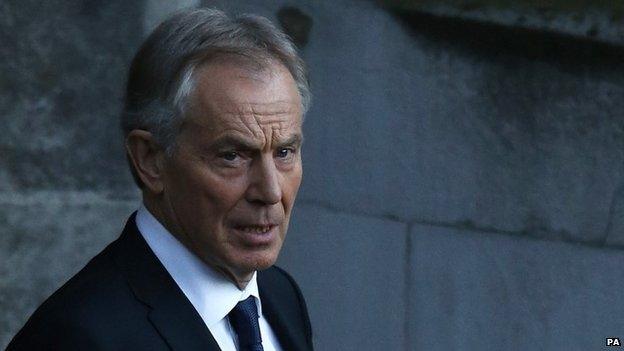
Tony Blair was one of more than 100 witnesses at the inquiry
"The inquiry has remained in control of its deadlines throughout the process. In some cases, the response sent to us required detailed and complex analysis which has taken time."
He said the process had identified government documents "which had not been submitted to the inquiry and which have in some cases opened up new issues".
But he added: "We expect to receive the last responses to our Maxwellisation letters shortly.
"That will allow us to complete our consideration of the responses, to decide what further work will be needed, and to provide the prime minister and thus Parliament and the public with a timetable for the publication of our work."
Mr Hammond said the delays were "frustrating" but the Chilcot inquiry "is and quite properly must remain an independent inquiry".
He also said he would seek parliamentary approval for any move to extend air strikes against so-called Islamic State from Iraq to include Syria, and this was "a quite separate issue from the publication of the Chilcot report".
'Not true'
When the Chilcot inquiry was launched in 2009, then prime minister Gordon Brown said it would take at least a year.
Sir John said he understood "the anguish of the families of those who lost their lives in the conflict", but added "it is critically important that the report should be fair".
He has faced a barrage of criticism in recent weeks, with Prime Minister David Cameron expressing his frustration at the delays.
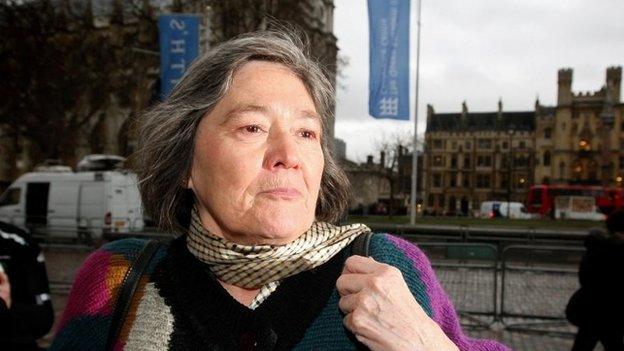
Clare Short suggested Maxwellisation was not to blame for the delays
Clare Short, who was international development secretary at the time of the 2003 invasion, said she did not believe the Maxwellisation process was the real reason for the hold-up.
The former minister is among those criticised in the report but she said the idea people were "endlessly being consulted I think is not true".
"I think what might be true is that the draft is very poor and it's as big as War and Peace I understand, lots of people have made serious responses and they are probably having to redraft," she told BBC Radio 4's The World at One.
"But I think the hope of it being a good piece of work that Britain learns what went wrong and we don't do it again looks very, very poor to me."
Blair criticism
All of those criticised had to reply to the inquiry within a deadline of a few weeks which had passed "a long time ago," she added.
She confirmed that she had received a draft copy of a section of the report that criticised her some time ago and that other individuals who were named would have seen sections relevant to them.
Earlier, the Guardian reported, external that the finished report will spread criticism well beyond Tony Blair and his inner circle of advisers.
Among those who could be in focus are the Labour former Foreign Secretary, Jack Straw, Sir Richard Dearlove, then head of MI6, Sir John Scarlett, chairman of the joint intelligence committee, Geoff Hoon who was defence secretary, as well as Ms Short.
- Published21 January 2015
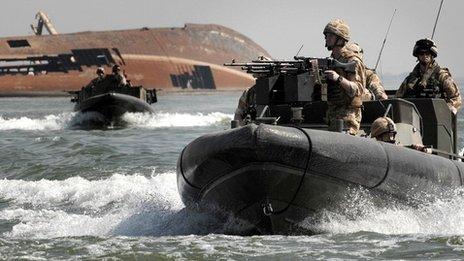
- Published21 January 2015
- Published5 July 2016

- Published29 May 2014
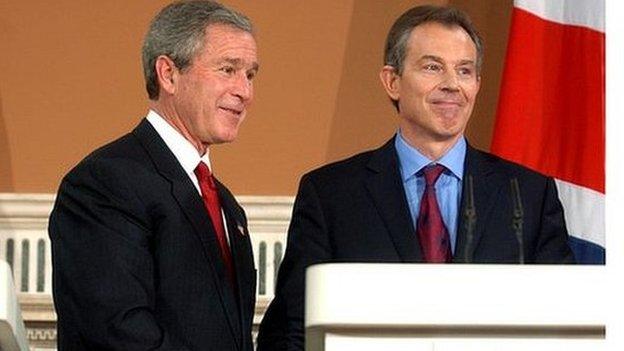
- Published27 May 2014
